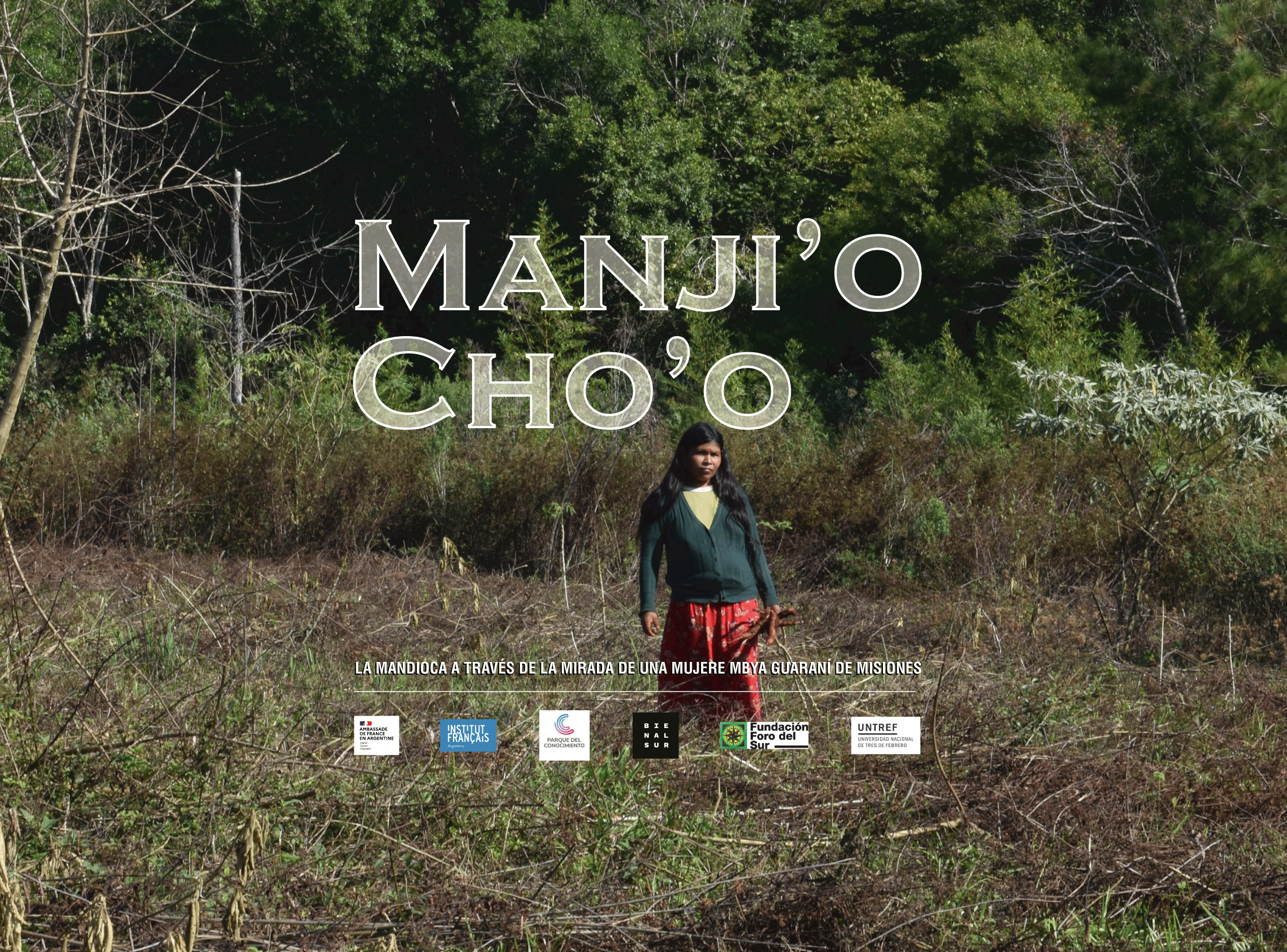
Manji’o Cho’o is an experimental short film by Kalie Granier, created in collaboration with Mbya Guaraní woman Juliana Escobar and her husband, Cacique Germán Acosta, along with anthropologists María Lucila Rodríguez Celin, Dr. Ana Padawer, all hailing from Argentina.
The project received support from various institutions, including The French Embassy in Argentina, L’Institut Français Argentine, Bienalsur 2023, UNTREF, Foro del Sur and Espacio INCCA del Conocimiento de Posadas.
Manji’o Cho’o immerses us in a day in the life of a Mbya Guaraní woman, offering a glimpse into her cultivation and preparation of cassava with her family in the forest. The film delves into the intricate process of transforming cassava into the cassava recipe, known as “Manji’o Cho’o” which is translated into Spanish as « pastel de mandioca » or in English as '“shepherd’s pie”.
This experimental film explores the culture of cassava through the culinary traditions of Mbya Guaraní people. In a time where languages are disappearing alongside 60% of biodiversity, this project is in Guaraní.
How might we reimagine cuisine as a cornerstone, not only in nurturing human connections but also in highlighting our interdependence with the broader web of living beings? Furthermore, what insights does this recipe reveal about the impacts of colonization and the influence of capitalist policies?





